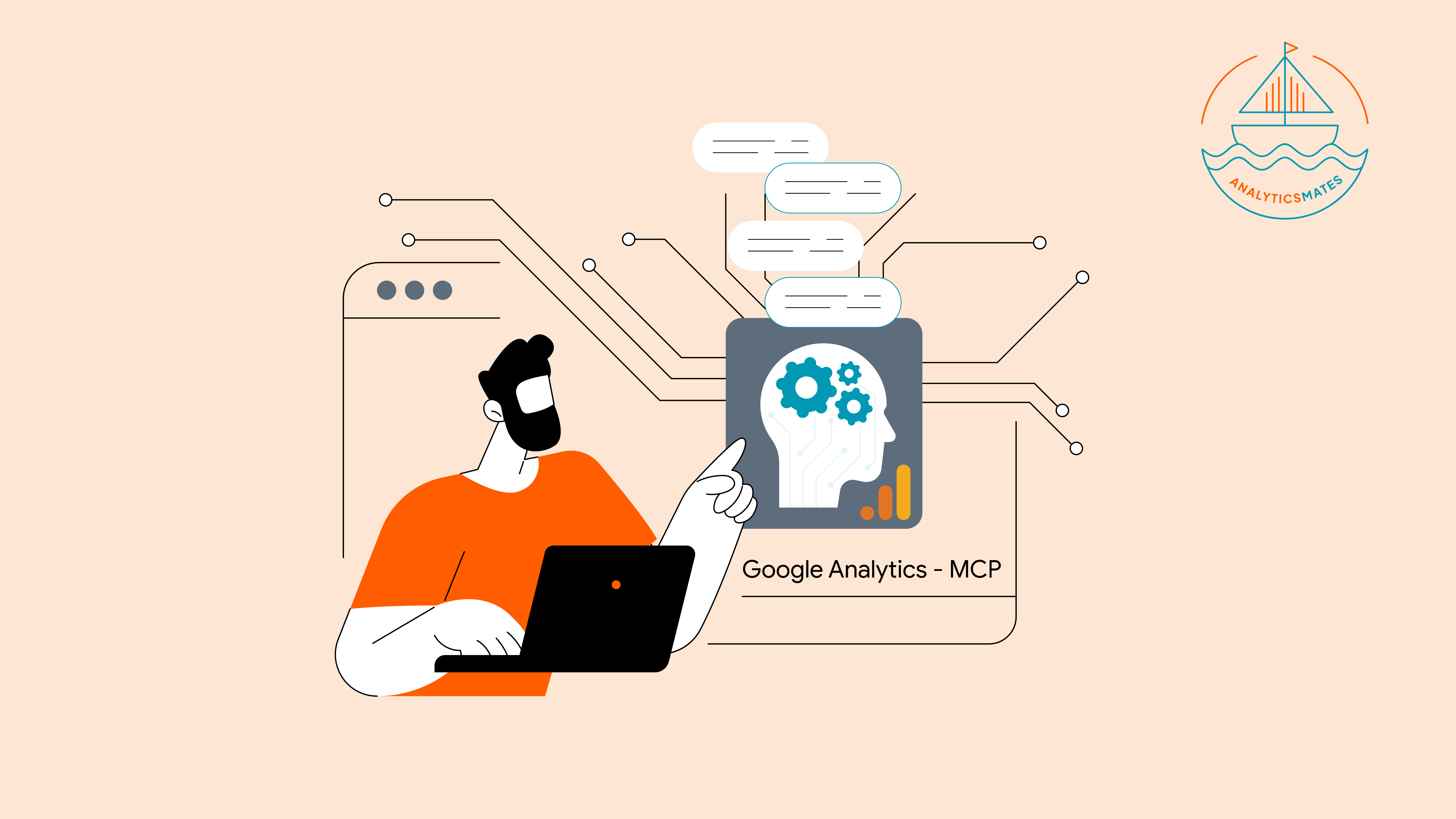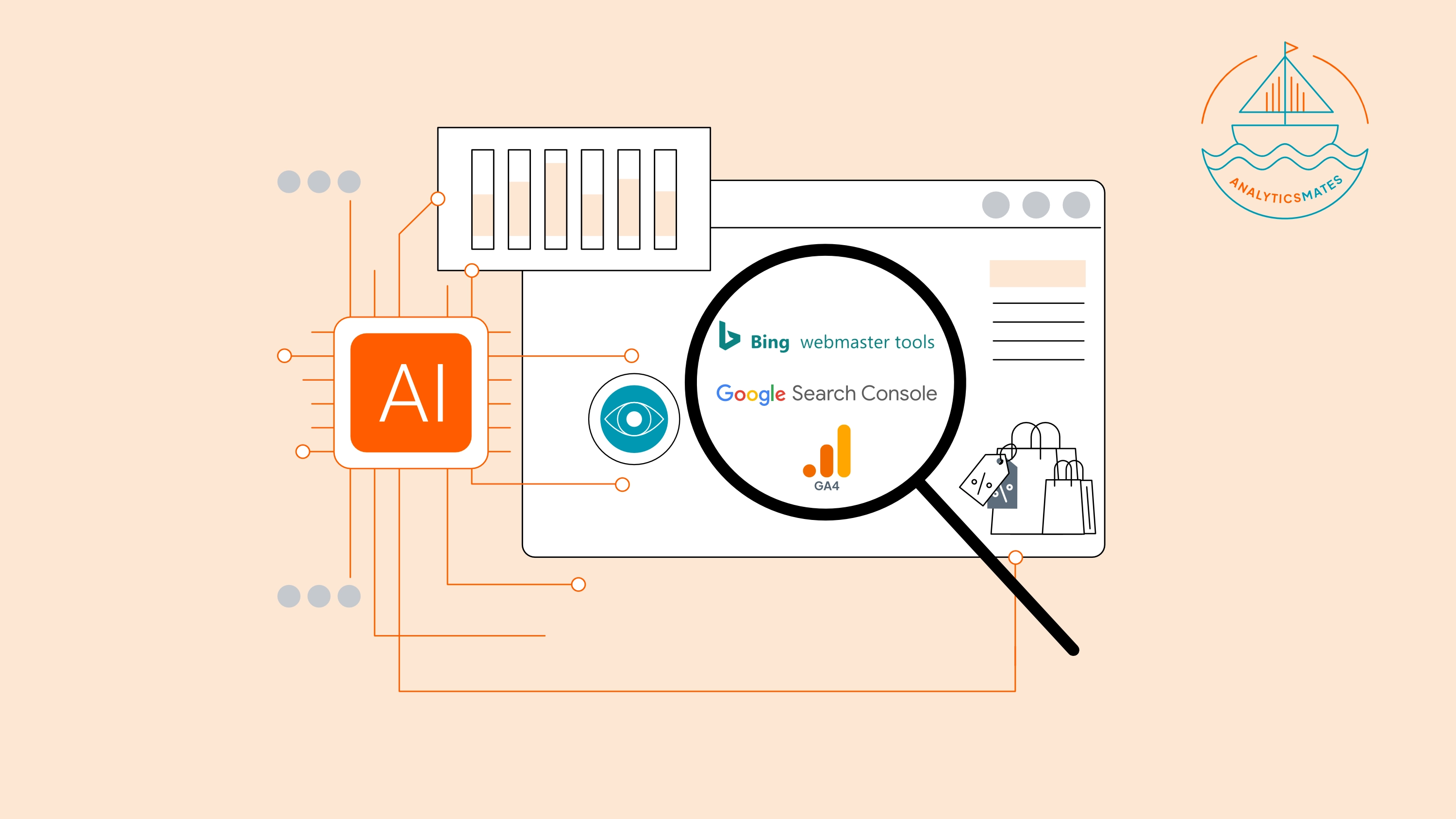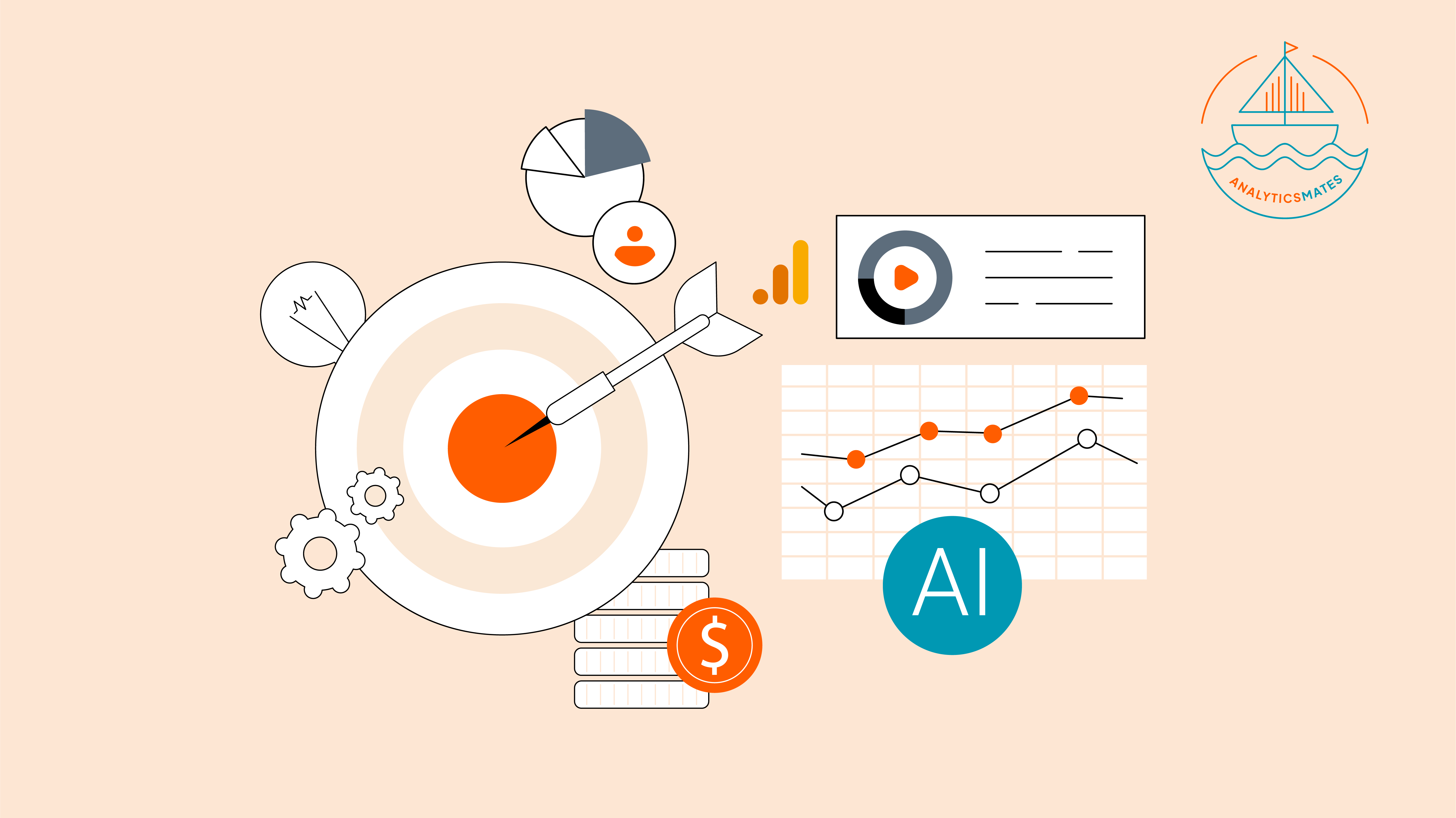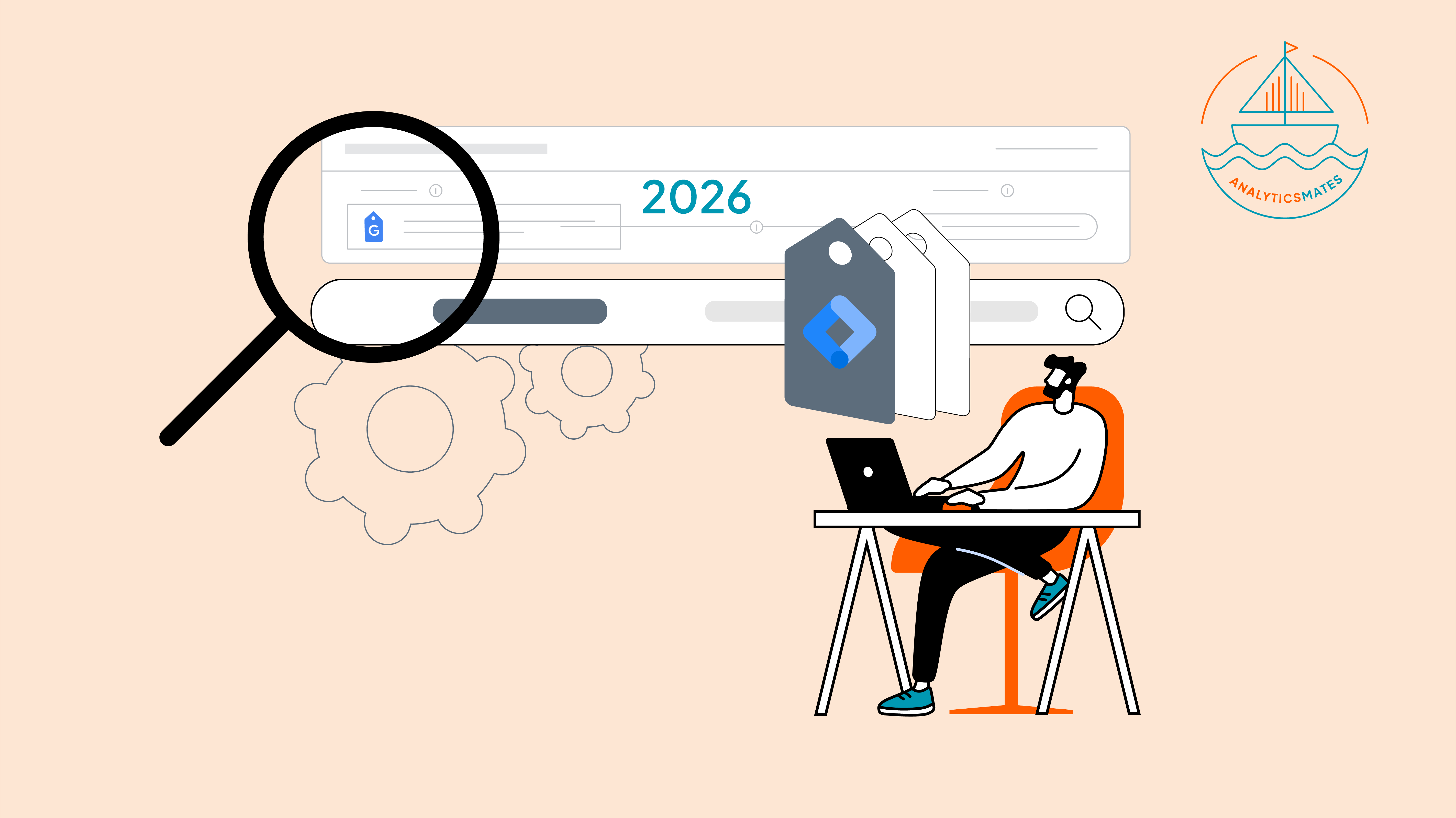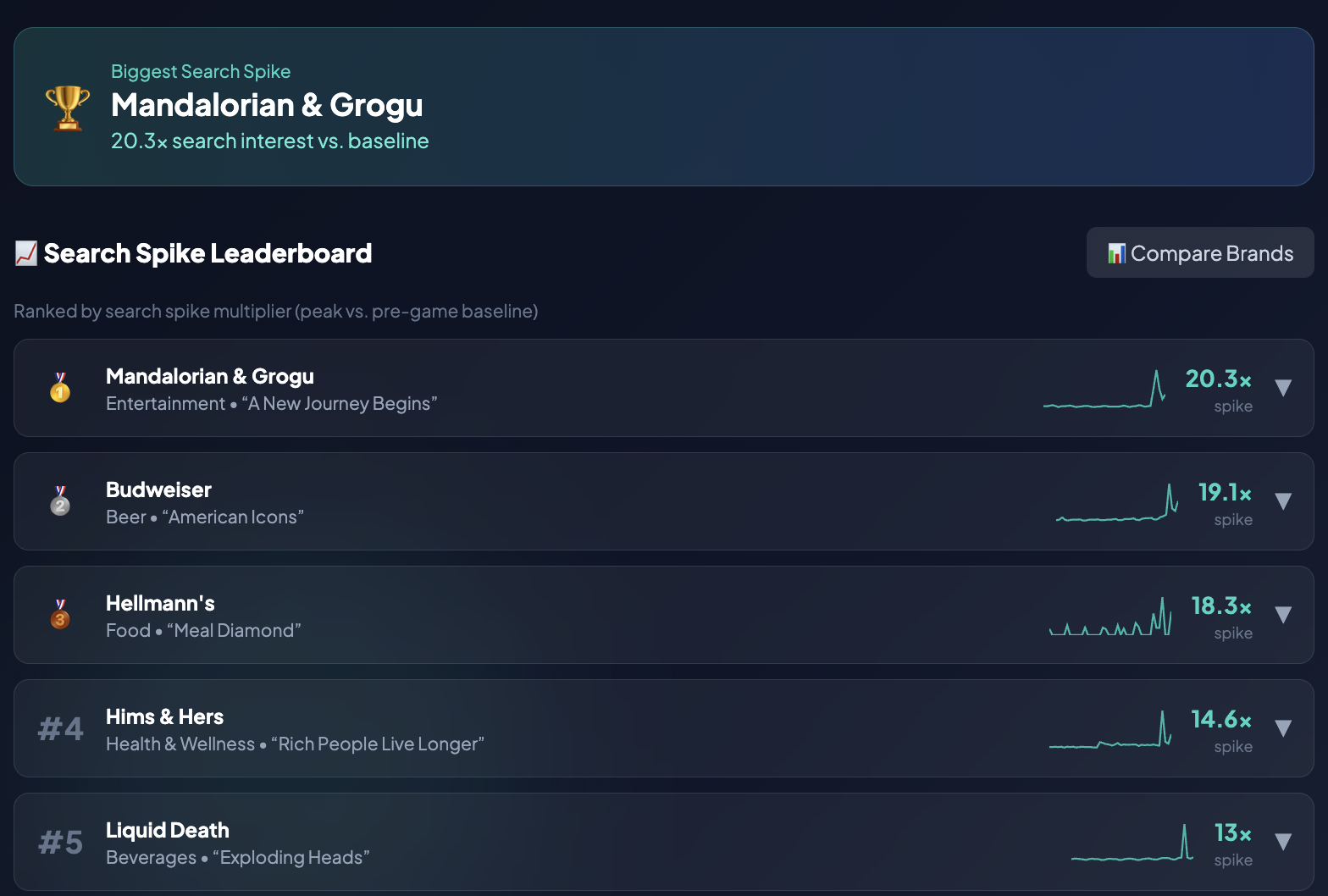Marketers and analysts have always struggled to make sense of massive amounts of their GA4 data. After some time, AI platforms helped bridge that gap, which actually gave us better ways to analyze and interpret our data. We export our GA4 data, share it to an AI platform, and give it prompts to run. However, there’s still a bit of a struggle, you’ve got dashboards in one tab, raw data in another, and a spreadsheet somewhere in between. By the time you clean, export, and analyze, the moment for action has passed.
But now, that’s changing. Over the past months, we’ve seen updates and news about the Model Context Protocol (MCP), which is huge. This integration between GA4 directly with tools like Gemini, ChatGPT, and Claude, allows you to ask questions, create reports, and visualize data instantly no more CSV exports, API connections, or copy-pasting numbers into spreadsheets. Awesome, right?Now, with MCP, it brings all of that together easier, faster, and fully connected. Let's dig into what this feature brings.
What Is MCP and Why It Matters
So before we explore how it changes your workflow, let’s understand what MCP actually is and why it’s such a big deal for GA4 users. You’ve probably already seen plenty of explanations online about what MCP is (aside from the official documentation here). But let’s keep it simple. MCP is Google’s new framework that connects AI tools directly to your analytics data in Google Analytics 4 (GA4). Think of it as a bridge that helps AI understand what’s really happening in your data, all within your analytics ecosystem, without going through exporting reports and feeding it to AI for analysis.
How MCP Fits Into the Bigger Picture
If you’ve been following the Analytics Mates blog, you might remember our earlier posts on how AI can help marketers and analysts work smarter. We explored how AI can:
- Audit and clean data by spotting event tracking issues.
- Generate insights by summarizing key takeaways from exported GA4 reports.
- Visualize reports by turning raw metrics into interactive dashboards and visuals.
All of that was about using AI alongside GA4. We’re speaking about the long method, but still effective. So, you have to export data from your data source/s let’s say Google Analytics 4 or from Looker Studio dashboard, once the raw data has been exported (and probably cleaned a little bit) you share this or feed it into an LLM of your choice, and with the right prompt, then wait for the results. Helpful, yes, but not always efficient.
Now, with MCP, those same capabilities are built right into your workflow. No more exporting files or losing context between tools. Everything happens inside your data environment, making your analysis faster, cleaner, and far more intuitive.
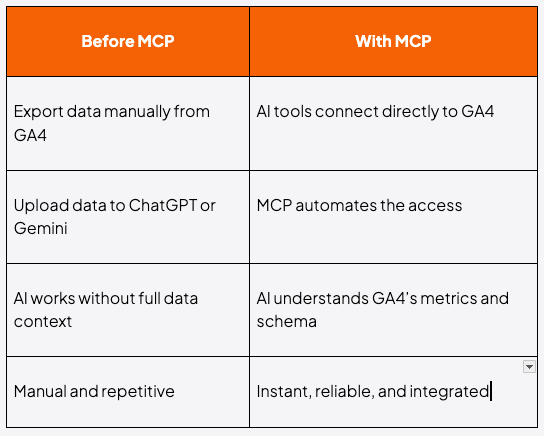
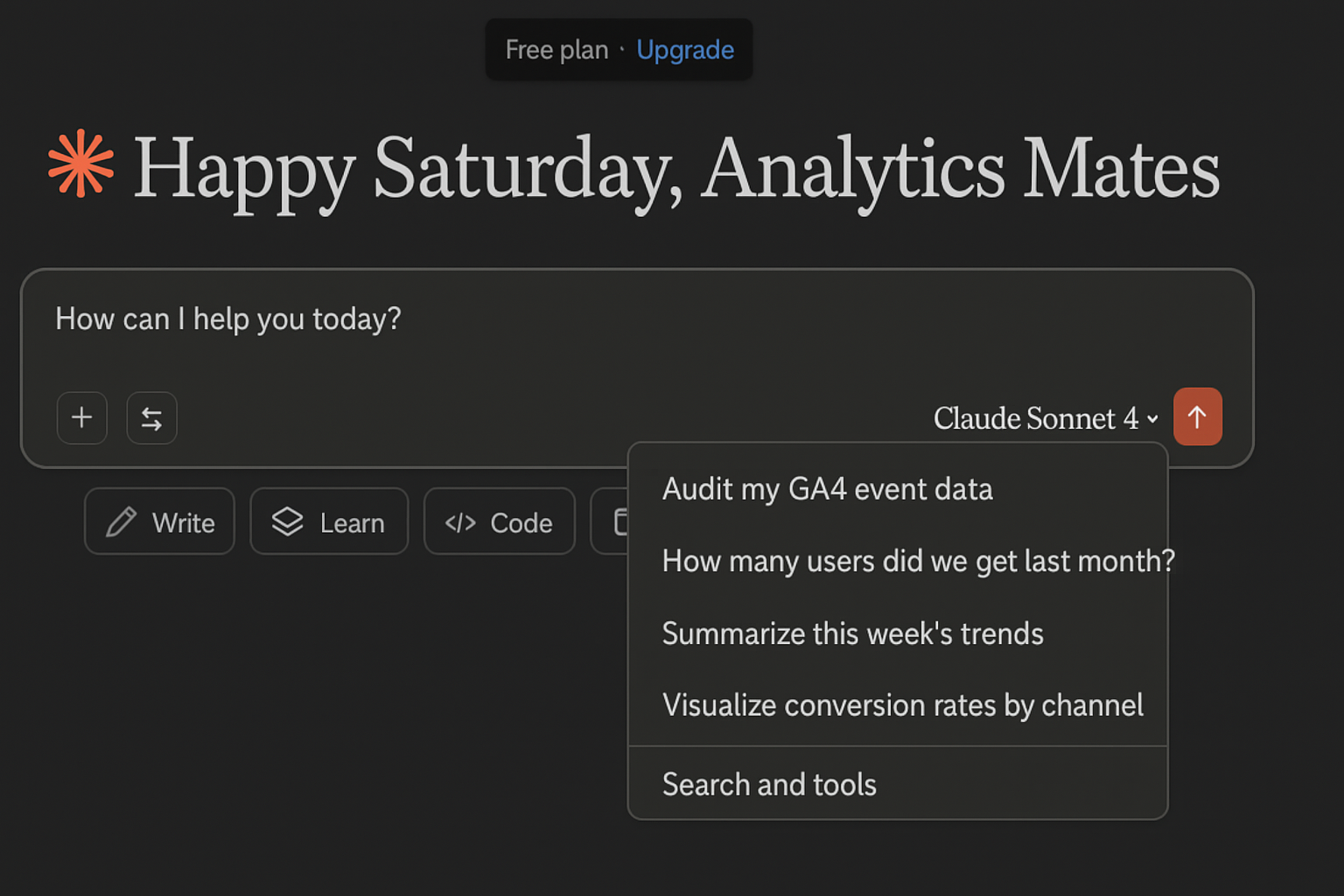
Imagine logging into your AI assistant and typing, “Show me which campaigns drove the highest engagement this month in GA4.” In seconds, the AI connects through MCP, reads your analytics data, and gives you an answer, complete with charts and next-step recommendations.
This shift means your entire analysis process now happens in one connected environment, without the need to switch between tools or reformat exported data. By keeping everything in one place, MCP reduces manual effort, minimizes errors, and ensures your insights always stay tied to their original context. You’re no longer reacting to static reports after the fact.Instead, you can explore your data in real time, ask smarter questions, and make faster, more confident decisions based on live insights.
You’re no longer reacting to static reports after the fact. Instead, you can explore your data live, ask specific questions, and make faster, more confident decisions.
How to Get Started with MCP with Your GA4
If you’re ready to explore what MCP can do, start with a solid data foundation. Everything depends on how clean and well-organized your data is, making it easier for your chosen LLM to analyze and generate accurate insights. You can read more of this here, Why AI-Powered Reporting Falls Short Without Clean GA4 Data.
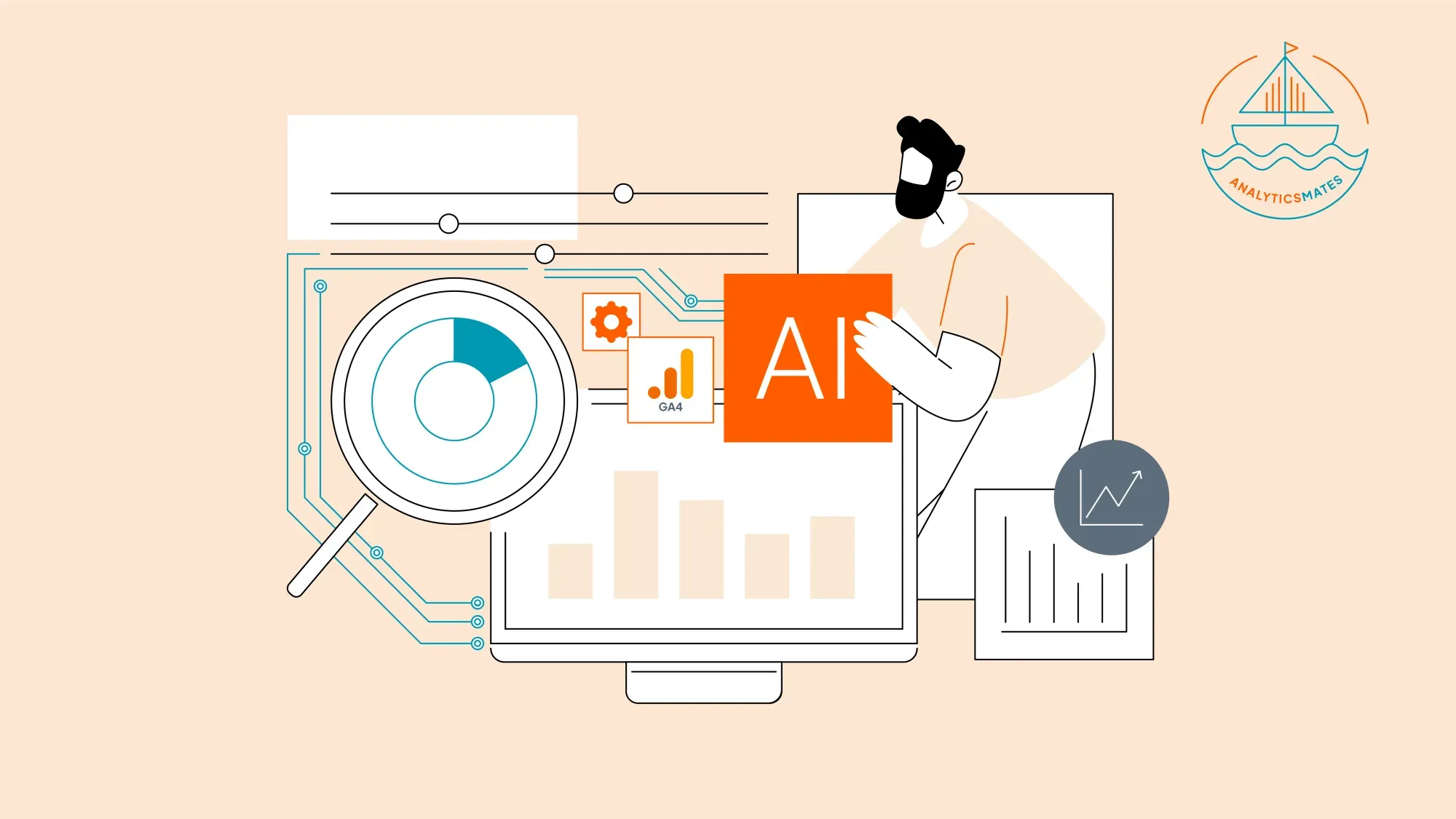
To get started, here are few simple ways:
Audit your GA4 setup.
Check your GA4 settings, could be default and other custom configs, in terms of tracking ensure your event names, parameters, and data structure are correct. The cleaner your GA4 setup, the more accurate your AI results/insights will be.
Here are some of our previous blog posts that can guide you through:
- GA4 Audit Checklist 2025: Data Clean-Up Using AI
- Stop Wasting Time: Run GTM Audits with AI Assistance
Review your measurement plan.
Your tracking setup should be aligned with your business goals - by identifying what matters most to you like conversions, engagement, or retention.
Experiment with AI tools.
Platforms like Gemini and ChatGPT (and other LLMs) are already moving toward MCP compatibility. Try using them to interpret your data or summarize reports directly from your analytics environment.There are several online articles and updates are available to help you get started, it’s just an option of what LLM would you choose.
Here’s some the articles that might help you get started based on what LLM options you take:
FAQs About GA4’s New MCP Feature
What’s next for MCP?
A: Google is expected to expand MCP’s capabilities to include deeper integrations with Looker Studio, BigQuery, and other AI-powered ecosystems. Soon, marketers could analyze campaign, CRM, and website data all in one conversational interface, a true step toward unified, AI-driven analytics.
Is MCP available to all GA4 users right now?
A: Not yet. Google is rolling it out gradually, so access may depend on your account type or data setup.
Do I need technical knowledge to use MCP?
A: No. The goal is simplicity, MCP is designed so marketers can use AI tools without complex setups or scripts.
Can I connect tools other than ChatGPT or Gemini?
A: Yes. MCP is designed as an open framework, so any compatible AI model can interact with your GA4 data securely.
Does using MCP compromise data privacy?
A: No. MCP follows Google’s existing privacy and data protection standards. Your data remains secure and under your control.
How is MCP different from GA4’s existing AI features?
A: GA4’s built-in insights are automated. MCP, however, allows external AI tools to work directly with your analytics data, offering much more flexibility.
Can I use MCP for e-commerce analysis?
A: Absolutely. You can connect your e-commerce data and use AI to analyze purchase trends, conversion funnels, and customer behavior patterns.
Do I need Looker Studio to use MCP?
A: No. While MCP integrates beautifully with Looker, it can also be used with AI tools independently.
What should I do before enabling MCP?
A: Make sure your tracking is clean and consistent, a solid measurement plan ensures MCP delivers accurate insights.
Will AI make manual audits unnecessary?
A: Not entirely. AI can automate the heavy lifting, but human oversight is still essential for context, judgment, and strategy.
How can small businesses benefit from MCP?
A: It levels the playing field, small teams can now access AI-driven analysis and reporting without needing a data engineering background.
Conclusion: The Future of Analytics Is Already Here
Bringing MCP into your analytics marks a major shift. It closes the gap between data and interpretation, allowing users to analyze their GA4 data with more context and spend less time on repetitive work. But don’t think of it as it is about replacing the analysts’ job, rather, it’s about empowering them to focus on what they do best and finding meaning in the numbers.
If you’re planning to explore MCP soon, take a step back before diving into the technical setup. Make sure you have a strong foundation first. That’s really the point of this blog post. While information about MCP and GA4 integration is now widely available, what often gets overlooked is the importance of maintaining clean, structured data. At Analytics Mates, we believe this is where many teams could miss the mark and where true success with MCP begins.
Thank you for reading!
We're always looking for ways to improve our Google Analytics 4 blog content. Please share your feedback so we can make it even better.
See Article Images




